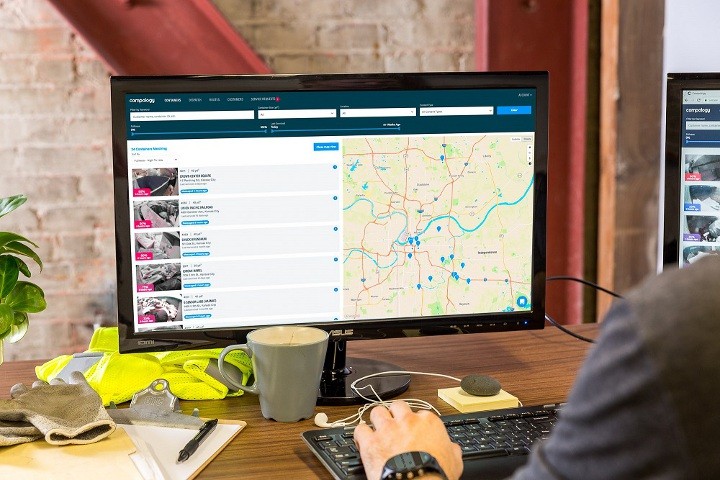Charity Recycling Service reduces costs with textile recycling bin monitoring technology
How one textile collection company is using Compology's camera system to improve operational efficiency, reduce costs and enhance eco-friendliness

Charity Recycling Service (CRS), a for-profit textile collection company, annually collects over 20,000,000 pounds of textiles across 15 states. With a focus on protecting the environment, its recycling program keeps millions of pounds of unwanted items out of the landfills, saves countless gallons of water and fuel, and stops the release of millions of pounds of CO2 into the atmosphere.
Throughout its 15 years of service, CRS has consistently searched for ways to operate more efficiently with the goals of reducing its cost of of collection to increase profitability, and reducing its impact on the environment.
Traditionally, CRS would have trucks head out each day to service every container no matter how full they were. Without the ability to know the fill-level of each bin, trucks were forced to waste time servicing empty bins and in turn, unnecessarily burning fuel into the atmosphere and often returning with an insufficient and unprofitable level of recyclables.
The Challenge for CRS? To find a reliable, verifiable and affordably scalable way to verify bin fullness and service only those that reach a minimum acceptable capacity for profitability. Finding a solution to this would mean great strides in both operational cost reductions and sustainability efforts.
The Solution: See It To Believe It
Charity Recycling Service set its sights on finding bin monitoring technology that would allow them to verify fill-levels, increasing weight per pickup and eliminating insufficient truck and fuel usage as a result trips to empty or low-fill bins.
It first turned to ultrasonic (sonar) sensors, but quickly realized that the technology was flawed as the textiles in the bins absorbed the sonar waves resulting in inaccurate, unreliable fullness measurements that could not be verified remotely.
That's when CRS turned to Compology's bin cameras, realizing that in order to have accurate, reliable data, it would need the equivalent of eyes at each bin. In January 2017, Compology cameras were installed in 330 bins. Finally, CRS had found a solution that provided reliable, remote oversight into the fullness, contents and location of each container. Now, they could focus on the goal of servicing only the bins that met their acceptable minimum fill-level.
Compology automatically measures bin fullness and provides multiple images a day for simple, remote fullness verification by logging into its web-based software.
The Results: Spend Less. Profit More. Be Eco-Friendly.
CRS increased its average weight per pickup on Compology equipped bins by 100% and reduced truck hours on the roads by 20% by cutting out unnecessary stops. As a result, Charity Recycling Service has now expanded the number of bins equipped with Compology by more than 20%, raising the total number to 400 and has successfully advocated for its sister companies to adopt Compology as well.
"The ability to actually see the content of our bins and verify fullness remotely lets us prioritize pickups to minimize our costs and avoid overflow." - Jay Katari, CEO, Charity Recycling Service
As Charity Recycling Service continues to expand its use of Compology across the 20 million pounds of recyclables collected annually, the positive impact to their profitably and environmental stewardship make them the marquee textiles recycler in the United States. Visit www.compology.com.
Company info
1045 Bryant Street Suite 101
San Francisco, CA
US, 94103
Website:
compology.com
Phone number:
.


